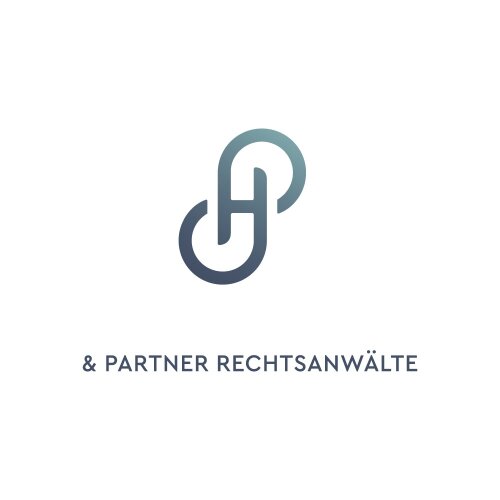Best International Trade Law Lawyers in Ruggell
Share your needs with us, get contacted by law firms.
Free. Takes 2 min.
List of the best lawyers in Ruggell, Liechtenstein
About International Trade Law in Ruggell, Liechtenstein
International Trade Law in Ruggell, Liechtenstein, is influenced by the country's strategic location and its participation in various international trade agreements. As part of the European Economic Area (EEA) and a member of the European Free Trade Association (EFTA), Liechtenstein benefits from a robust framework for trade operations. This legal domain encompasses regulations on the import and export of goods, trade agreements, tariffs, and compliance with international standards.
Why You May Need a Lawyer
Involvement in international trade activities can present complex legal challenges that may require expert intervention. Individuals and businesses might require legal assistance for the following reasons:
- Negotiating and drafting of international sales contracts.
- Understanding and complying with international trade agreements and regulations.
- Resolving trade disputes or customs issues.
- Protection of intellectual property rights in cross-border contexts.
- Assistance with export controls and sanctions compliance.
- Handling trade remedy measures like anti-dumping or countervailing duties.
Local Laws Overview
Liechtenstein's legal framework is highly integrated with international and European trade laws. Here are some key aspects:
- Customs Regulations: Liechtenstein shares a customs union with Switzerland and treats cross-border trade through its regulations.
- Trade Agreements: The country benefits from various international trade agreements through EFTA and EEA, which facilitate the movement of goods and services.
- Compliance Requirements: Businesses must comply with strict standards on product safety, environmental regulations, and workplace conditions.
- Dispute Resolution: Disputes may be resolved through arbitration, which can involve local or international forums depending on the case's nature.
Frequently Asked Questions
What is the role of EFTA in Liechtenstein's trade law?
The European Free Trade Association (EFTA) facilitates free trade agreements with non-EU countries, offering Liechtenstein access to wider markets beyond Europe.
How can I resolve a trade dispute in Liechtenstein?
Trade disputes can be addressed through negotiation, mediation, or arbitration. Additionally, parties may seek redress through the court system or specialized trade tribunals.
What are import regulations like in Liechtenstein?
Import regulations are aligned with Swiss customs rules, requiring proper documentation and adherence to standards regarding product safety and labeling.
How do international sanctions affect trade in Liechtenstein?
Liechtenstein aligns with the EU and US sanctions, which can affect trade with certain countries or specific entities, requiring businesses to conduct due diligence checks.
Are there specific labeling requirements for imported goods?
Yes, products must adhere to labeling standards, including language, safety information, and compliance marks in line with European norms.
Do I need a specific license to export goods?
Licensing requirements depend on the type of goods. Certain products, particularly sensitive ones, may require specific export licenses.
What tax implications are there for international trade in Liechtenstein?
Liechtenstein applies its own value-added tax (VAT) and customs duties, which align with shared practices in the customs union with Switzerland.
How does Liechtenstein protect intellectual property internationally?
Intellectual property is protected under international treaties and agreements that Liechtenstein is a party to, including the TRIPS Agreement.
What is the role of the Chamber of Commerce in Liechtenstein's international trade?
The Chamber of Commerce provides support, resources, and advocacy for businesses engaged in international trade, including guidance on compliance and market access.
Can foreign companies set up branches in Liechtenstein?
Yes, foreign companies can set up branches or subsidiaries subject to registration procedures, providing access to the European market through Liechtenstein.
Additional Resources
Several resources can assist those seeking guidance in International Trade Law:
- Liechtenstein Chamber of Commerce: Offers advice and networking opportunities for businesses involved in trade.
- EFTA Secretariat: Provides information on trade agreements and market access conditions.
- Government of Liechtenstein: Publishes resources and guidance on compliance with local laws and regulations.
- Legal Firms Specializing in International Trade: Offer expertise and practical solutions for complex trade issues.
Next Steps
If you require legal assistance in International Trade Law, consider taking the following steps:
- Identify Your Needs: Clearly define your legal requirements, whether it's contract drafting, dispute resolution, or compliance advice.
- Research Legal Experts: Look for specialized lawyers or law firms in Liechtenstein with experience in international trade law.
- Schedule Consultations: Meet with potential legal advisors to discuss your case and understand their approach and expertise.
- Gather Documentation: Prepare all necessary documentation related to your trade operations to facilitate efficient legal counsel.
- Ongoing Compliance: Work with your legal advisor to ensure continuous compliance with evolving trade regulations and standards.
Lawzana helps you find the best lawyers and law firms in Ruggell through a curated and pre-screened list of qualified legal professionals. Our platform offers rankings and detailed profiles of attorneys and law firms, allowing you to compare based on practice areas, including International Trade Law, experience, and client feedback.
Each profile includes a description of the firm's areas of practice, client reviews, team members and partners, year of establishment, spoken languages, office locations, contact information, social media presence, and any published articles or resources. Most firms on our platform speak English and are experienced in both local and international legal matters.
Get a quote from top-rated law firms in Ruggell, Liechtenstein — quickly, securely, and without unnecessary hassle.
Disclaimer:
The information provided on this page is for general informational purposes only and does not constitute legal advice. While we strive to ensure the accuracy and relevance of the content, legal information may change over time, and interpretations of the law can vary. You should always consult with a qualified legal professional for advice specific to your situation.
We disclaim all liability for actions taken or not taken based on the content of this page. If you believe any information is incorrect or outdated, please contact us, and we will review and update it where appropriate.








